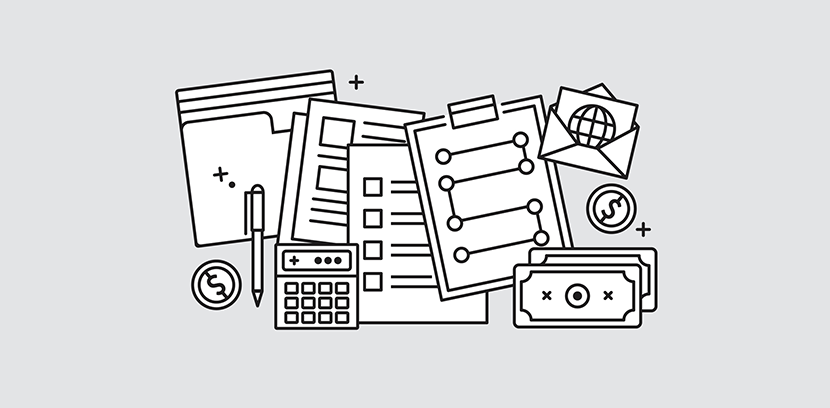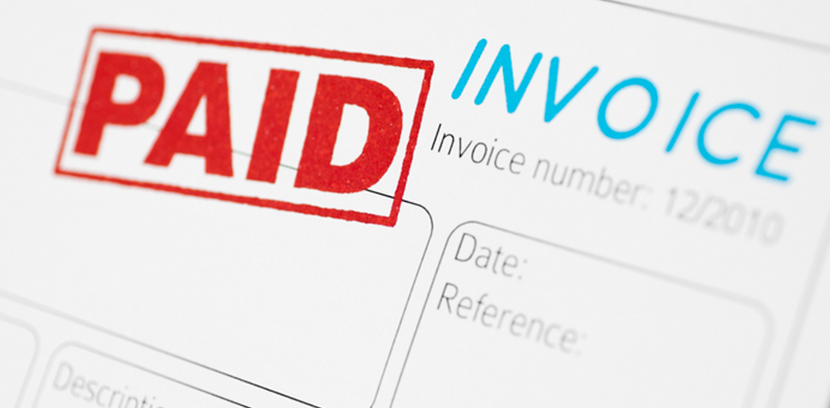One of the biggest factors determining the success or failure of a business is how well they manage their accounts receivable. Accounts receivable management is defined as the practice of collecting money that is owed after extending credit for a product or service. You may not think of invoicing as extending credit but anytime your business delivers a product or a service and has to wait on payment, you're effectively giving the other business a credit line. That payment should be received in a relatively short amount of time or your cash flow is affected.
When your sales team closes on a new client, they quickly move on to the next prospect. With just a few moments to celebrate, there are still contracts that need signed and a quota to reach. As the client is set up in your invoicing system, you're given accurate information about the new sale including the client contact and accounts payable department. What happens, however, when the client stops paying? Was your sales team duped? Surprisingly, one of the reasons for nonpayment is because your information is outdated.
How accurate is your client information?
If you're running a business or simply part of the accounts receivable department, you know that unpaid invoices can be the bane of your existence. You need money to pay bills. You need money to invest in the business. You need those invoices paid so you don't have to make an uncomfortable phone call.
The best way to get your invoices paid on time is to determine what processes or systems work best for you and your clients. These processes will help you to improve cash flow by increasing consistency, timeliness and accuracy.
Here are 3 focus areas and proven strategies to get your invoices paid.
In a Quora thread from last year, an owner of a software business shared the story about a client who stopped paying for their SaaS services. After months of nonpayment and no response to follow-up notices, they closed his account. He later chose to sue the software company for closing his account and they went to court. Because their contract clearly stated that they could close his account due to nonpayment, they won their court case.
Freelancers, software companies and marketing agencies are examples of businesses that may work exclusively with other businesses. Because of the potential for litigation, B2B contracts are not only important, but necessary for protecting the interests of these companies.
Here are 10 things to include in every freelance and B2B contract.
One of the main reasons for hiring a professional to do your taxes is when you have questions or complex tax situations. For small businesses, freelancers or startup companies, there may not be an accounting department to handle things like invoicing or other accounts receivable tasks. When you're a department of one or someone who's only wearing the accounting hat temporarily, you may have some questions such as...
Do you have to pay taxes on accounts receivable?
You've established a great rapport with your client. They love what you have to offer and you feel like they're a great fit for you. Now it's time to discuss how much they're going to pay for it.
😫
Feeling a bit queasy about this part? Most people do. Beyond the understanding that you can ask for what you're worth, this is also the time to make it a natural and expected part of your business relationship. Because it is.
Here's how to talk to your clients about money.
If you are a freelancer or own a small business, it can be tempting to do everything yourself to save money. Tax time can be especially daunting because of changes in tax laws, deductions, sending out tax forms to contractors and more. There are loads of software programs available and a free IRS website for DIY tax prep as well, which may also prompt you to do it on your own.
Are you wondering if you should hire a professional to do your taxes instead? Consider the following:
When you work or partner with other businesses as your customers, it can be especially frustrating when they don't pay their invoices. B2B sales are much more complicated and require building relationships and trust over time. With this in mind, it may be tempting to take late or non-payment personally. Don't fall for it.
Collect unpaid B2B invoices using friendly payment reminder services.
The word “outsourced” sometimes has a negative connotation. Your employees may assume their jobs are at stake if management starts talking about outsourcing. You might be concerned about the lack of control over client relationships or the impact the third-party would have on your business. While it's true there are pros and cons, a true partnership can far outweigh any concerns.













